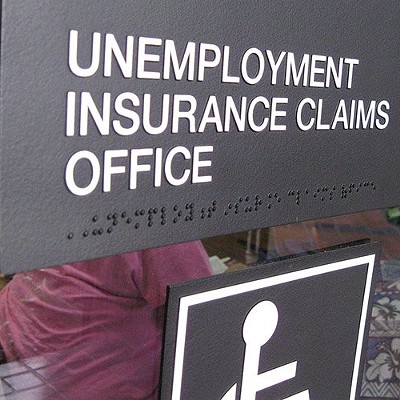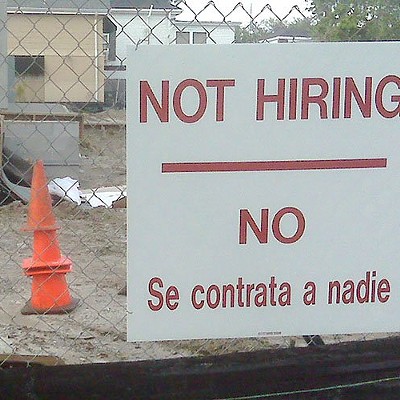The Department of Economic Security's unemployment-insurance operations have become overwhelmed because of a spike in new claims, driven both by growing unemployment numbers and people filing for the extended benefits that President George W. Bush signed into law in June.
Informally, in places like DES Jobs Program offices, people are being told to expect a delay of three to five weeks before any money shows up. These offices aren't really unemployment offices, but their employees have some access to the financial records and document histories on claims.
The logjam apparently affects people whose claims are subject to what DES calls "adjudication" over eligibility issues. Those cases involve additional fact-finding, which could include interviews to get more details about why someone lost a job, or verifying information about severance packages and payments for unused vacation or holiday hours.
Elizabeth Barker, DES' director of communications, said the number of new claims is up sharply from a year ago.
"In the first week of August 2007, we received about 3,800 new claims. In the first week of August this year, it was about 7,600," she said.
In August 2007, the state's unemployment rate stood at 3.9 percent, with 112,010 people out of work, according to U.S. Bureau of Labor Statistics data. In August 2008, Arizona's jobless rate was 5.6 percent, nearly a five-year high, with 173,541 people jobless--up 15,000 people from July's levels.
At the same time, DES officials are dealing with the federally funded 13-week extension, which affects people whose unemployment benefits expired after May 2007. Even though they're already in the system, these benefit-seekers are treated in a sense as new claims, and that includes re-contacting employers to verify issues such as why the applicant lost the job.
Barker said the agency has hired additional employees and put people on overtime to bring the delays down.
"We're aware of how important of a bridge unemployment insurance is to these people," Barker said.
And it is a shaky bridge at that. Arizona's maximum unemployment payout--$240 per week before optional withholdings for federal and state income taxes--is third-lowest among the 50 states, according to the U.S. Department of Labor.
DES had previously made several moves to streamline the process of getting weekly payments out to eligible recipients. About 11 months ago, the state stopped issuing paper checks; instead, unemployment recipients who have checking or savings accounts can opt for direct deposit. Those who don't receive a debit card from JPMorgan Chase Bank that is "reloaded" every week.
The claims reporting that recipients must do--such as answering eligibility questions about whether you looked for work, did any work during the week, or earned any money--also occurs via the Internet or by calling in responses on a touchtone telephone.
Many new filers can apply online through the DES Web site, but still have to wait for notifications to come in the mail. Other applicants--such as people whose base-period work history spans more than one state--still must talk to a DES employee by contacting the agency's telephone call center. And that's where part of the bottleneck may be happening, as new filers vie for slots in the call queue with people who are checking on the status of their claim, wanting to know where their money is. (That can make life tough for people whose only telephone is a pay-as-you-go cell phone, because each dial-and-connect counts against the bill, as does the time on hold.)
The recording does suggest less-busy times to call back if the customer can't wait. And those who persevere often get other surprises, sometimes bad and sometimes good--such as a message that "the estimated wait time is 1,268 minutes," or an estimated wait time of 90 minutes that bears fruit in only 30.
Information about the possible delay in receiving benefits isn't something that DES folks who work on the unemployment side volunteer when someone applies for benefits whose claim may need adjudication.
In the case a certain out-of-work journalist (that would be me), the deputy who took the report in August said only that he would get a letter when the claim was approved.
About four weeks later, when no money had come through, I called about my claim, on Sept. 24, and was told by one deputy that there was a backlog, and "we're hoping to get things cleared by Sept. 26."
On Sept. 25, I called and spoke with a different deputy who said that the average delay had reached eight weeks. I mentioned my conversation the previous day and was told, "Well, I wouldn't have said that."
My claim was approved the next day.











